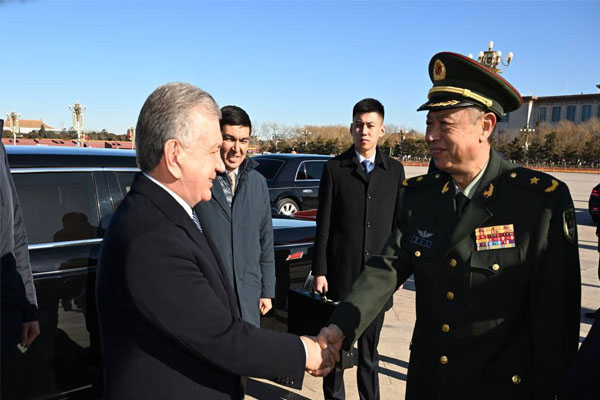BEIJING: Uzbekistan’s President, Shavkat Mirziyoev, embarks on a significant state visit to Beijing, meeting Chinese leader Xi Jinping. This visit aims to fortify the burgeoning relationship between the two nations and establish a comprehensive agenda for the future. Ahead of the trip, President Mirziyoev expressed admiration for China’s economic development model, characterizing the current phase as reaching “new historical heights.”
The visit follows the inaugural China-Central Asia leaders’ summit in May, where pivotal agreements were inked to deepen economic and security ties between China and the region. President Mirziyoev seeks to build upon these agreements and a comprehensive strategic-partnership accord signed in 2022 during his discussions with Xi and other high-ranking Chinese officials.
While courting investments will be a priority during the meetings, the visit is envisioned as more of a roadmap-setting exercise for the future. This includes bringing previously signed deals into fruition, spanning green energy projects, scientific cooperation, and enhanced tourism between the two nations. The objective is to define a long-term cooperation agenda that can endure for decades.
The geopolitical landscape has evolved significantly, notably with Russia’s full-scale invasion of Ukraine in 2022. This has elevated China’s stature as a dependable political and economic partner in Central Asia. China’s Belt and Road Initiative (BRI) is also undergoing changes, with a focus on making it smaller and greener, aligning with global calls for sustainable development.
Amid these shifts, China is exploring new avenues for investment and strategic lending. The Uzbek visit may see discussions on these newer sectors, including renewables, aligning with China’s emphasis on environmental consciousness. China’s investments in environmental and scientific research across Central Asia, especially in Tajikistan and Turkmenistan, indicate a broader network of interests beyond traditional infrastructure projects.
China’s interest in Uzbekistan extends beyond traditional sectors. With a population of 35 million, Uzbekistan presents an attractive partnership. Sectors like renewable energy and the market for electric vehicles are in focus. China, a global leader in these areas, aims to replicate its success in Uzbekistan, as demonstrated by the agreement between Henan Suda and the Uzbek Energy Ministry to construct 50,000 electric vehicle charging stations by 2033.
President Mirziyoev’s prioritization of relations with China predates this visit. Quoting former Chinese leader Deng Xiaoping in his speeches, he views China as an economic development exemplar. Mirziyoev has been particularly keen on China’s anti-corruption measures and poverty alleviation efforts. This alignment is not merely political but holds educational significance for Uzbekistan, providing a blueprint for navigating the complexities of contemporary global realities.
As President Mirziyoev seeks to deepen Uzbekistan’s ties with China, this state visit symbolizes the continuity of a diplomatic trajectory set in motion years ago. The changing geopolitical dynamics, coupled with China’s evolving global strategy, offer Uzbekistan opportunities to diversify its collaborations. This visit serves as a platform to transform existing agreements into tangible outcomes, setting the stage for enduring cooperation in diverse sectors.
